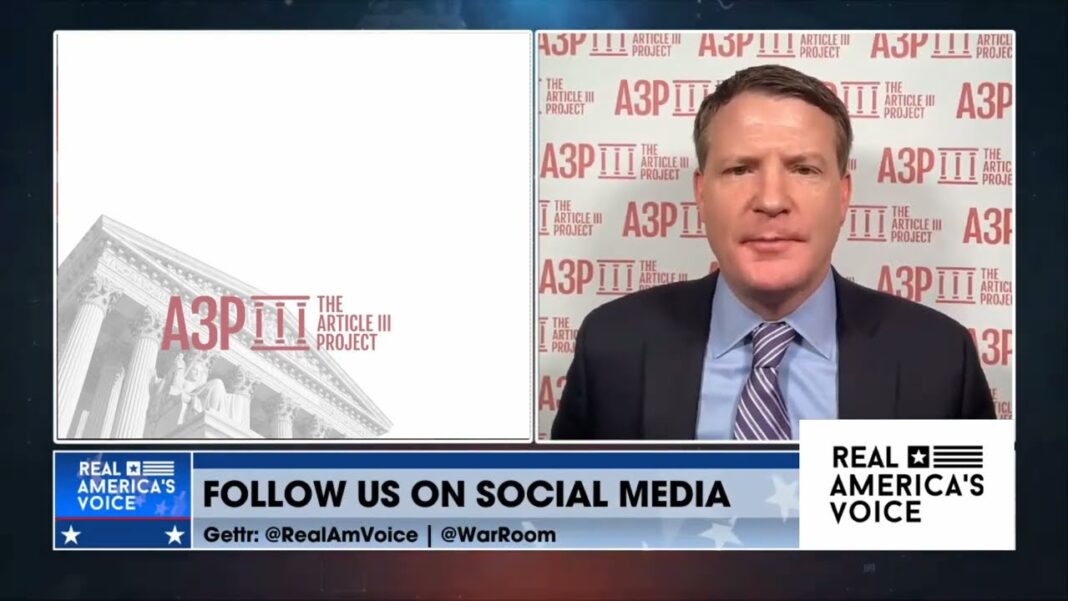With the exception of the Civil War, the people of the United States have generally lived in a rule-of-law society, one in which all persons are accountable to laws that are publicly promulgated, equally enforced, and independently adjudicated. Regrettably, by living so long in good fortune, the people of the U.S. have not put serious thought into what happens when the rule of law dies. The Biden administration’s recent creation of a two-tier system of justice bluntly informs us that while the nation has been blessed with a civil society for 247 years, we are not protected from a bad ending. The theory of the rule of law may be eternal, but its application in the U.S. now appears transient.
Why are the actions of the federal government today more harmful to democracy than in the past?
While there has always been corruption in the federal government, it has never been systemic until the Biden administration. The House of Representatives Committee on Oversight and Accountability sets out the timeframe of corruption from 2013 to 2023. It includes Biden’s corrupt dealings with China, Ukraine, Romania, and Kazakhstan. Biden’s Department of Justice and its surrogate investigative arm, the Federal Bureau of Investigation (“collectively DOJ”), have indicted and are attempting to imprison former president Trump, Biden’s primary rival in the 2024 election. This all follows four years of the Trump presidency, during which the DOJ lied to the FISA courts about the Trump administration and concocted the false Russian collusion narrative that led to the sham impeachment of Trump.
The most horrifying conduct of Biden’s special counsel is his effort to criminalize Trump’s right to speak, think and have confidentiality in his discussions with lawyers. This conduct is an attempt to criminalize all speech that is different from the government’s sanctioned speech.
There is also the DOJ’s attempt to give a sweetheart, no jail time, deal to Hunter Biden by ignoring his conduct as a tax cheat, drug addict, money launderer, and unregistered foreign agent. Even the day before Devon Archer was to give testimony before the House Oversight Committee, DOJ informed him to report to prison before giving testimony. This was an overt attempt at witness intimidation. While the list of crimes by the Biden administration will fill volumes in the history books, the existential question is – how much harm can the Biden administration do to the nation if its conduct continues?
How bad can Biden’s corruption get? Really bad!
Keep in mind the federal government has sovereign immunity. It cannot be sued without its consent. It will not prosecute itself for criminal conduct. Yes, corrupt officials can be prosecuted but only if the DOJ seeks to prosecute them. The Hunter Biden saga illustrates the power DOJ to destroy the rule of law in the United States. DOJ intentionally delayed prosecuting Hunter Biden for almost a decade, thereby allowing the statute of limitations to expire on the most serious tax evasion charges. And, finally, when a Republican House of Representatives pushed the DOJ into prosecuting Hunter Biden, DOJ indicted him on misdemeanor charges and, in a faux plea agreement, sought no jail time. It also attempted to give him complete immunity for all other crimes. Fortunately for the nation, judge Noreika uncovered DOJ’s deception and refused to accept the sham plea deal.
The significant point in DOJ’s coverup is that it has the sole power to determine who will be prosecuted and what laws will be enforced. Congress can investigate DOJ actions, but it cannot force it to act in accordance with the law or to apply our laws equally. The courts can only hear matters before them. Nothing requires the federal government to prosecute any specific crime. The president can fire corrupt DOJ officials, but what if those officials are carrying out the president’s orders? Yes, the House of Representatives can impeach the president for treason, bribery, and other High crimes and misdemeanors, but if the Senate refuses to convict the president, all his corruption continues.
What does this mean?
President John Adams described our Republic as “A government of laws, not of men.” In the 21t c. those words are pure poppycock. The United States is a government of individuals holding personal power, wealth, and privilege. These individuals will undertake any action, including criminal conduct, to protect themselves the country be damned.
While the proper role of a government official should be as a trustee to the Constitution and a fiduciary to the institution in which they serve, few officials follow that path. Most hold power as politicians that give loyalty only to those helping them maintain their office. It is this loyalty to party and donors that undercuts the principle of separation of powers in the Constitution. There are no checks on power; there is only the Republicans checking the power of Democrats and Democrats checking the power of Republicans.
How can the power of the Executive branch be controlled?
The most effective mechanism for ensuring limited government, but the least likely to be acted upon by our officials, would be for each branch of government to constantly check the power of the other branches, notwithstanding political party affiliation. Absent an effective check on power, there are a few options for restraining corruption:
- The most practical approach to controlling corruption in the Executive branch is if one House of Congress is controlled by a party in opposition to the president. That House of Congress can refuse to fund a corrupt government, notwithstanding the fact that part of the government will shut down. The House of Representatives has a clear choice, to fund corruption or to shut down the corrupt agency.
To appropriate money, the House of Representatives and the Senate must agree on the amount of money the government needs, and the president must sign the appropriations into law. But if one House of Congress refuses to appropriate any money to fund a part of the government, that part of the government will be discontinued without passing a new law. This crude process is the only way to control a corrupt government.
- Congress should grant Use Immunity to those with knowledge of corruption in the Executive branch. By granting use immunity to corrupt officials, corrupt officials can be forced to testify without fear of future punishment for the new information they provide. Securing the truth may be the only mechanism to make the federal government honest and eventually workable.
- The only real power “We the people” have to control government is our power to vote for members of Congress. We do not vote for the President; that is done by the electoral college and a convoluted quilt of state voting laws, state Secretaries of State, and judicial proceedings. The Supreme Court is appointed, as are the millions of nameless bureaucrats that make laws daily by regulating almost every aspect of society.
Our right to vote for members of Congress is extraordinarily powerful. It is a legal mechanism for a peaceful revolution. With our votes, we can vote out all members of Congress every two years and elect a Congress that is a trustee of the Constitution and a fiduciary to the institution in which they serve. Only by electing a Congress willing to constantly check the powers of the other branches of government can citizens ensure that at least one branch of government, Congress, functions as the Constitution intends.
Electing a Congress that obeys the Constitution is the only failsafe mechanism given to the people to ensure we remain a Republic. If the people of the U.S. continue to elect a Congress that gives it loyalty to politics rather than the Constitution, the nation dies.
So how bad can a corrupt government be?
In the final analysis, John Adams was wrong. We are not a government of laws. The Biden administration and its DOJ have transitioned the United States into a government of men. Rather Thomas Jefferson, Adams’ nemesis, had it correct when he stated, “The government you elect is the government you deserve.” There is little in our Constitution to control a government that is willing to corrupt our constitutional system for personal benefit. So, we must all recognize as citizens the government we elect only functions as well as the individuals we elect.
So how bad can it (the federal government) get without the rule of law? Pick your worst nightmare, and don’t leave any possibility out for being too terrifying. As a nation of men, not laws, we are all subject to the power of narcissists exercised for personal political advantage. History has proven such insanity can result in inhuman outcomes.







